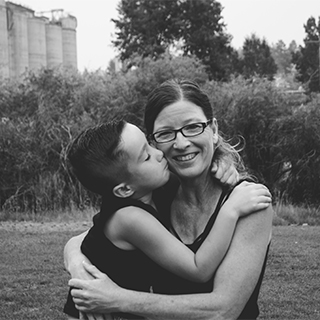A Parent’s Perspective: Take It From Your New Bestie, You Can’t Do Everything

By Elizabeth Hill:
Elizabeth Hill is a freelance writer, encourager, and humorist who resides with her husband and four children in central Montana. You can read more of her musings, eureka moments, and the hilarious events that mark her days with joy at elizabeth-hill.medium.com or find The Part I Love on Facebook.
Every family with a special needs child has most likely had a cringey moment in public. Staring? Check. Random guy giving our child in a wheelchair a five-dollar bill and walking away? Weird, but true.
Our three typically developing children (TDC) laugh and take it all in stride. Being the sibling to a special needs child (SNC) has its rewards and challenges. In general, siblings of an SNC are deeply empathetic and aware of those around them. They are also sensitive to imbalances of attention to their needs in comparison to the attention their sibling requires.
This article is not intended to be guilt-inducing, but to offer helpful suggestions so all members of the family have their needs addressed. Note I did not say all members of the family have their needs met. As human beings and as parents, it is physically, emotionally, and logistically impossible for you to meet every need of each member of your family.
Can you identify and address them? Absolutely.
Can you find ways for others to assist you to meet those needs? Yep.
Can you prioritize the needs and focus on the one that is most needful? Uh-huh.
Is it your responsibility to meet every one of them? Impossible.
TIME
We all know that time is a scarce resource for special needs parents, so make the best use of the time that you have. Can you include your TDC in errands, business trips or hobbies? Can you regularly schedule dates with your TDC? Putting our SNC to bed as early as possible gives us some golden one-on-one time with our other children. Whether you divide and conquer, or combine time with both parents, make one-on-one time a priority by putting it in your calendar just like any other appointment.
A THING
Some parents find an activity or hobby that is shared with just them and their TDC: a TV show that you regularly watch together, a community event, an extracurricular activity or sport that is theirs alone, etc. Whether it’s with you or on their own, fostering an identity outside being a sibling of an SNC is crucial.
RECOGNITION
Every human being wants to be SEEN; it is important to recognize and value individual needs, contributions, and interests. Be honest about the disparities and ask, “What is one thing that we could work on as a family to make it better?” We are also clear in our communication with medical and school staff that we don’t center our family around our child’s disability. Sometimes therapy or follow-up at home will be less than they would like because she is one member of a family. We can’t do all the things for her all the time, so we just do our best and know that it’s good enough for now.
RESPITE CARE
I’ve noticed that the families struggling the most don’t have circles of security around them (extended family, church support, community resources, or trusted friends) to offer respite care. Typically developing siblings are sometimes the best caregivers, but be aware of their needs. Ask if they are willing/available to help and give them guaranteed “time off.” Actively seeking out people and community resources to fill in the gaps is worth every minute of your time.
Now, I’m going to pretend that you and I are besties and that you don’t have personal space issues and we are sitting knee to knee and I am holding your hand in mine, looking you in the eye and saying:
Your best is enough. Your best efforts are fluid and vary depending on many things, but they are enough. You are doing a far better job than you give yourself credit for. Trying and trying again is a sign of success.
Remember: as a human being and as a parent, it is physically, emotionally, and logistically impossible for you to meet every need of each member of your family. Just be aware of them and work together with those around you to address and meet the most important needs.
Repeat.
Applaud when you get it right.
Fail and apologize when you don’t.
And try again.
You are running a marathon, not a sprint, so be patient with yourself and don’t give up. We’re all running the race alongside of you and we are cheering you on.
Disclaimer:
The views and opinions expressed in this article are the author’s and do not necessarily reflect the official policy or position of the Montana Family to Family Health Information Center, the Rural Institute for Inclusive Communities, or the University of Montana.

